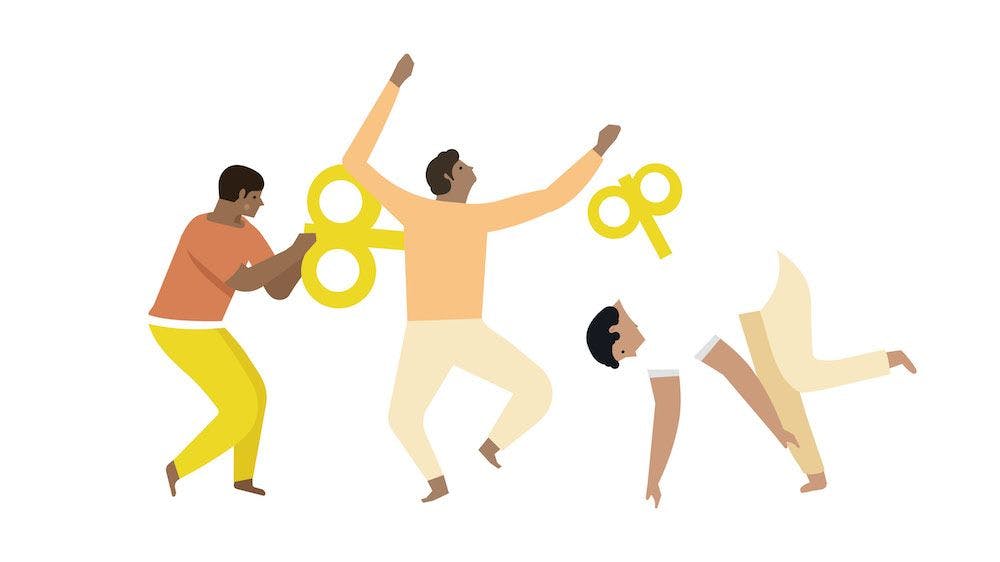
Don’t get caught in a trap, learn how to spot manipulation in action, and break free for good
Throughout our lives, we’re bound to come into contact with manipulative people. It could be in the workplace, in a friendship, or a relationship – it might even be a family member. Manipulation comes in many different forms, but most of the time it happens on the sly, and you may not always realise what’s going on.
But, as counsellor Chris Mounsher shares, once you have identified the problem, there are several steps you can take to break free of manipulation, and start to create your own boundaries again.
1. Be aware of the problem
“The first step is to notice what’s happening,” says Chris. “It’s impossible to deal with manipulation if you aren’t aware.”
We can get used to certain behaviours very quickly, to the extent that we’re able to unconsciously ignore them. So Chris recommends taking a step back from the situation.
“Notice the patterns of behaviour. If you’re always told that you aren’t doing enough, no matter how much effort you put in, this might leave you in an anxious place with the other person holding all the anger. Perhaps this is about more than just the task at hand?” Chris says.
Often, the best way to spot abusive behaviour is to really think about how it makes you feel. Has an action made you feel guilty, worried, sad, sidelined, or frustrated? That could be a sign.

2. Trust in yourself
“Feeling battered by the torrent of another’s manipulative behaviour can make it hard to trust in your own experiences, but this is vital,” Chris notes. Take some time to tune-in. What behaviour feels right and good to you? What are your core values telling you about the situation?
“Talk through what has happened, either by yourself or with a trusted friend,” says Chris. “Make sense of the situation, and judge for yourself what is OK and reasonable, away from the manipulative behaviour. Hold onto this understanding, and remember that you deserve to be treated with respect.”
3. Set boundaries
When we set sturdy boundaries, we’re making it clear to others, and ourselves, what we will and will not accept.
“Boundaries are there to keep us safe,” says Chris. “If you feel you’re being pushed to do things that aren’t acceptable, say so. Set your boundaries, and remember that the other person will find this hard, but if you understand the pattern of manipulation and trust in your experience, it will be easier to stand up for yourself.”
If you find that your boundaries are being challenged a lot, perhaps take some time to reflect on what this can tell you about the nature of the relationship, and if there are other limits that you need to set and make clear.

3. Understand their perspective
“This may seem counter-intuitive, but it can help to understand the other person’s perspective, even if you find it completely unreasonable,” Chris advises. “To know that the other person is struggling, and trying to control their world through manipulation, may make you feel less victimised, and may help to reduce your frustration.”
Chris points to the examples of a family member criticising you for not returning their calls immediately – in that case, it could be that their manipulative behaviour is stemming from a fear of rejection. “However, it’s important to use the previous steps to connect with your views and remember that you’re allowed to disagree, and to decide what is reasonable for yourself,” Chris adds.
"Try to remain as calm as possible, as it will help you to see clearly and to navigate this difficult situation as best you can"
4. Don’t be afraid to walk away
Keep up the self check-ins, and stay on top of how you’re feeling so that you’re able to make the healthiest choice for you. “There may be times when it causes too much pain to stay engaged with the other person,” Chris says. “In this case, you may choose to walk away, or minimise your contact.”
As Chris explains, it’s not always possible to resolve every conflict or undesirable trait. In those cases, the least painful option could be to let that person go, and to try to move on. You may find you’re happier in the long-run.
Chris is a humanistic counsellor with particular experience working with anxiety, addiction, depression, low self-esteem and relationship difficulties. Find out more by visiting counselling-directory.org.uk

